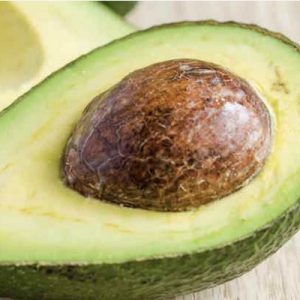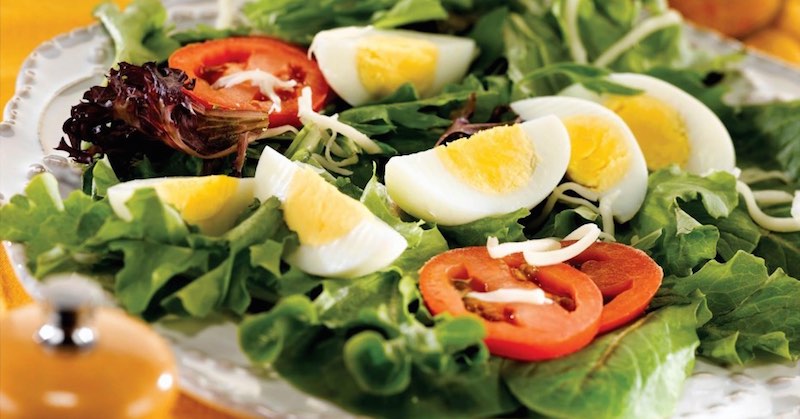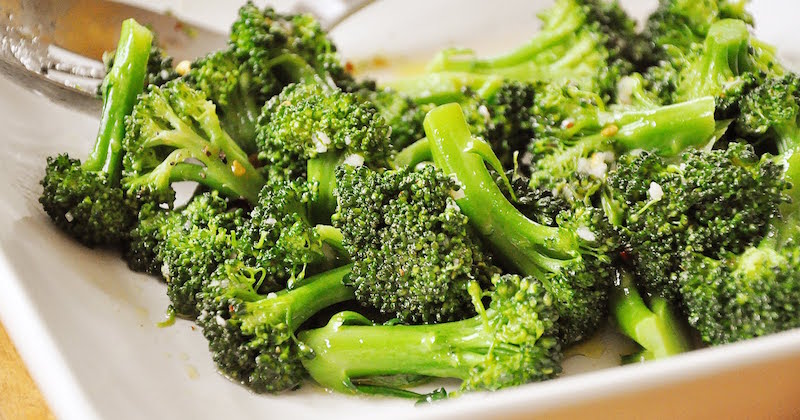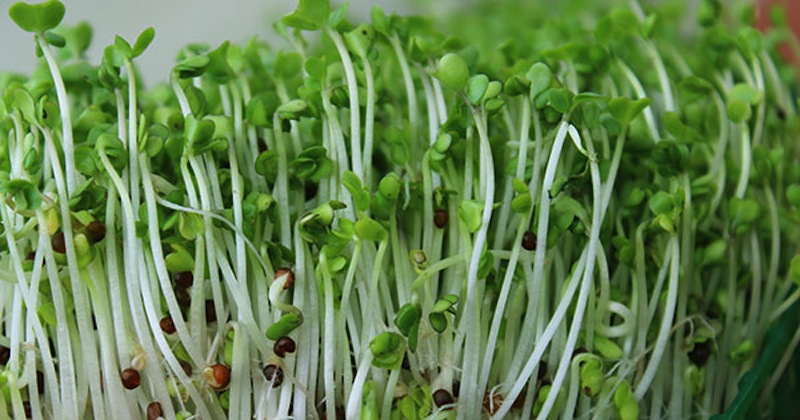Tips On Preparing A Healthy Salad And To Ensure Maximum Absorption Of Nutrients
Last updated on
A salad can make a great meal, but not all salads are created equal. Just because it has lettuce as its base or “salad” in its name doesn’t automatically make it healthy, and many salads at fast-food restaurants are examples of that.
You’re better off avoiding salads topped with fried meats (often sold as “crispy”), croutons, or tortilla strips (which are sometimes added to taco salads)… and you’ll also want to avoid most store-bought dressings—especially the low-fat and fat-free varieties.
A healthy salad must have a source of high-quality fats to help your body absorb its beneficial nutrients. You can get these from your dressing and also by selecting your toppings wisely. One of the best salad toppings of all? Eggs!
Read: How to prepare your eggs for maximum absorption of your salad’s nutrients.
Your Salad Dressing Make Or Break Your Salad
One of the most important toppings on any salad is the dressing, and here you’ll want to avoid most store-bought brands. Commercial salad dressings often contain soybean oil, corn syrup, preservatives, monosodium glutamate (MSG), sugar, and even artificial flavors and colors.
Low-fat dressings particularly need to be avoided. When fat is removed from a food product, it’s usually replaced by sugar/fructose for it to taste good, and this is a recipe for poor health. Excess fructose in your diet drives insulin and leptin resistance, which are at the heart of not only diabetes but most other chronic diseases as well.
Homemade salad dressing is surprisingly easy to make using a combination of healthy fats, such as coconut oil, raw yogurt or kefir, or olive oil, vinegar, and herbs and spices. Coconut oil may make a particularly good choice, as like eggs it’s been found to increase the absorption of nutrients.
In an animal study that compared the effects of feeding coconut oil versus safflower oil on the absorption of carotenoids from tomatoes, coconut oil enhanced tissue uptake of tomato carotenoids to a greater degree than safflower oil.5
I personally do not use any salad dressings. Instead I use several ounces of fermented vegetables made with our Kinetic Starter Culture, so not only am I getting the lactic acid vinegar like flavor but trillions of beneficial microbes and a very significant dose of vitamin K2.
Eating fermented vegetables, and other fermented foods, like kefir, regularly is also one of the best ways to nourish your gut flora for optimal nutrient absorption, as a healthy gut is conducive to this. Without the proper balance of gut bacteria, your body cannot absorb certain undigested starches, fiber, and sugars.
The friendly bacteria in your digestive tract convert these carbohydrates into primary sources of important energy. These bacteria also produce a secondary layer of indispensable fermentation byproducts such as bacteriocins (which fight infection), beta glucans (which modulate immunity), and the entire B group vitamin series, to name but only a few of the nutrients they are capable of producing for us.
Read: 10 Foods that you can use to make a rich salad.
3 Super Addition To Your Healthy Salad
Adding eggs prepared appropriately can maximize the absorption of your salad nutrients. Use a healthy homemade dressing, and the following addition to make your salad into a superfood.
1. A Mix Of Leafy Greens
Start your salad off not only with romaine, spinach, and red- and green-leaf lettuce but also mix in some of the lesser-used leafy greens. Watercress is actually one of the most nutrient-dense vegetables out there, scoring higher on nutrient-density scores than both broccoli and sunflower sprouts. It’s also a cruciferous vegetable, which means it has cancer-fighting properties.
Part of the cancer-fighting powers of cruciferous vegetables comes from an enzyme called phenethyl isothiocyanate (PEITC). PEITC is naturally produced when you chew cruciferous veggies, and when researchers exposed human cervical cancer stem cells to PEITC, 75 percent of them died within 24 hours.6 Other cruciferous veggies that make a wonderful addition to salads include arugula, kale, and cabbage. You can also throw in some broccoli, radishes, and cauliflower, if you like.
2. Avocado
Avocados provide close to 20 essential health-boosting nutrients, including magnesium, potassium, vitamin E, B vitamins, and folate, and, according to research published in the Nutrition Journal, eating just one-half of a fresh avocado with lunch may satiate you if you’re overweight, which will help prevent unnecessary snacking later.7

Avocado is also beneficial for maintaining optimal cholesterol levels. Healthy individuals saw a 16 percent decrease in total cholesterol level following a one-week-long diet high in monounsaturated fat from avocados.
In those with elevated cholesterol levels, the avocado diet resulted in a 17 percent decrease of serum total cholesterol, and a 22 percent decrease of both LDL-cholesterol and triglycerides, along with an 11 percent increase of the so-called “good” HDL cholesterol.8
3. Sprouts
Sprouts may be small, but they are packed with nutrition, including vitamins, minerals, antioxidants, and enzymes that help protect against free radical damage. Many of the benefits of sprouts relate to the fact that, in their initial phase of growth, the plants contain more concentrated amounts of nutrients.
As a result, you need to eat far less sprouts, in terms of amount, compared to a mature plant. For example, when sprouting seeds, nuts, beans, and grains you get higher vitamin and enzyme content, increased essential fatty acid and fiber content, and increased bioavailability of minerals and protein.
Two of my personal favorites are sunflower seeds and pea shoots—both of which are typically about 30 times more nutritious than organic vegetables. They’re also among the highest in protein. In addition, sunflower seeds contain healthy fats, essential fatty acids, and fiber—all of which are important for optimal health.
Best of all, sprouts are incredibly easy to grow at home, and you can harvest them within about a week of starting the process. I typically have three trays of sunflower sprouts growing whenever I’m not travelling and usually eat them nearly every day when I’m at home.
Make Your Salad Organic
If you can find them, make all of the ingredients for your salad organic. The largest study of its kind found that people who “often or always” ate organic food had about 65 percent lower levels of pesticide residues compared to those who ate the least amount of organic produce.9
Research also found that organic produce had, on average, 180 times lower pesticide content than conventional produce.10 In addition to lowering your pesticide load, organic produce is more nutritious. For instance, organic fruits and vegetables can contain anywhere from 18-69 percent more antioxidants than conventionally grown varieties.11
Growing tomatoes according to organic standards results in dramatically elevated phenolic content and vitamin C compared to tomatoes grown conventionally.12 In 2010, PLOS ONE also published a study that was partially funded by the USDA, which found organic strawberries were more nutrient-rich than non-organic strawberries.13
So by starting off with organic ingredients, your salad will be more nutritious right off the bat. As you add in even more healthy options … like eggs, sprouts, avocado, and your own homemade dressing rich in healthy fats, you’ll have elevated your lunch or dinner from an ordinary salad to a veritable superfood.
This article was originally published on Mercola.com. It is republished here with permission.
Some of the links I post on this site are affiliate links. If you go through them to make a purchase, I will earn a small commission (at no additional cost to you). However, note that I’m recommending these products because of their quality and that I have good experience using them, not because of the commission to be made.




































 JOIN OVER
JOIN OVER
Comments